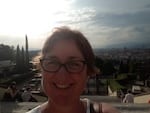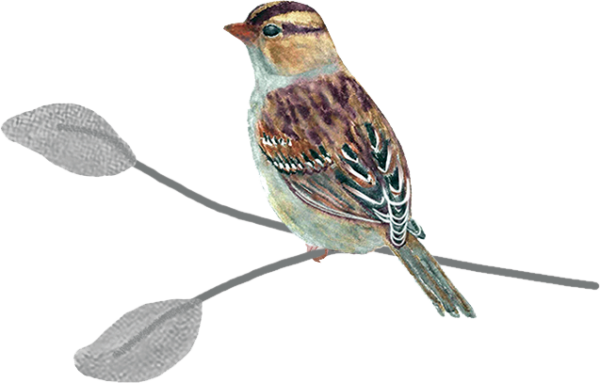I am delighted to share another beautiful submission to the Monk in the World guest post series from the community. Read on for Susan Fish’s reflection on creative work as offering in the midst of trying times.
I’ve never been to Paris but when I saw the cathedral on fire this week last year, I held my breath. I like knowing that iconic sites like the Eiffel Tower and Notre Dame de Paris are there. It is enough for me that they stand in my mind as signs and symbols, pointing.
When Notre Dame began to burn, I recognized that fire as a symbol too: I know what that’s like. Over the last three years my life was turned upside down by a family member’s head injury, which resulted in an event that felt like a kind of betrayal. The thought of a roof caving in feels very familiar to me. And now, in the first months of 2020, many of us know this experience.
A few years back, after the death of Carrie Fisher who played Princess Leia, I heard she had once said, “Take your broken heart. Turn it into art.”
So I did. I wrote a novel that contained precisely none of the details of my life, and every one of the emotions. It contained its own icon, its own Notre Dame – a painting of the Virgin Mary on the wall of the main character’s room in the Florentine convent where she stays to work out her own caved-in roof.
When my writing coach said the book was structurally sound, off it went into the world to look for a publishing home.
But as no thanks letters rolled in, I felt like the girl in the story told by writer and minister Robert Fulghum about playing the game Giants, Elves and Wizards with a group of children. As they prepare to play what is effectively a full-body Rock, Paper, Scissors, Fulghum feels a tug on his sleeve. “Where do the mermaids stand?” asks a young girl. Fulghum tries to put her off – the roles don’t include mermaid – but she will have none of it: “For I am a mermaid.”
Rejection is never easy and they say you’re supposed to recognize that it’s not personal, that it’s never about your own value or even necessarily the value of the writing. But that’s easier said than done. Where do the mermaids stand?
Fulghum’s answer to the girl is to tell her, “The mermaids stand right here, next to the King of the Sea.” And that was my answer to my publishing angst too. I am reminded that my worth comes not from publication but from being beloved, that my writing too needs to come out of this place.
The fifth principle of the Monk Manifesto reminds me that living as a monk in the world means committing to “bringing myself fully present to the work I do, whether paid or unpaid, holding a heart of gratitude for the ability to express my gifts in the world in meaningful ways.”
I shift that principle a bit to say “whether published or unpublished.” This means I need to write even when it seems foolish, like the woman who lavished perfume on the feet of Jesus, mopping it up with her own hair. It means continuing to offer my gifts to the world, even in the face of rejection. The writer Elizabeth O’Connor says, “The artist or prophet [is] the one who dares to act on the bold belief that she has a word to speak that would be healing if it could be heard…our lives are for the greening of the earth and each other.”
In this season, it’s a question to ask ourselves: how, at a distance, can our lives be for the greening of the earth and each other? In a time of pandemic, how can we express our gifts in the world in meaningful ways?
For me, some of that answer has been in writing small prose poems on my Facebook page, as ways of pointing people to the beauty and the sorrows of life, and in writing daily collect prayers in order to point people toward God. It has also meant not thinking less of my work because I am not a nurse, doctor or frontline worker, but to be a mermaid by the King of the Sea.
I love that Notre Dame will be rebuilt (and that the uproar over its rebuilding led to torched Black churches getting funded in their rebuilding too). I love that Notre Dame’s rose windows survived the fire intact. Most of all, I love the story that came out days later, that the rooftop beehive on Notre Dame survived the fire, and that the bees inside had simply been lulled to sleep by the smoke, as they would be when racks of honey were removed. Timbers may have crashed down but beauty and small queens and drones alike have survived
I, too, have survived the crashing that inspired the story and the crashing of rejection, and we too will survive this collective crash. Like the bees making their sweet honey, my work—and yours even if your work is a very different call—is to create with a heart of gratitude out of a place of love, and to send my stories out into the world as a fragrant offering.
 Susan Fish is a writer and editor living in Waterloo, Ontario, Canada. Her Italian novel, Renaissance, will be published in by Innana Publications in 2021.
Susan Fish is a writer and editor living in Waterloo, Ontario, Canada. Her Italian novel, Renaissance, will be published in by Innana Publications in 2021.



